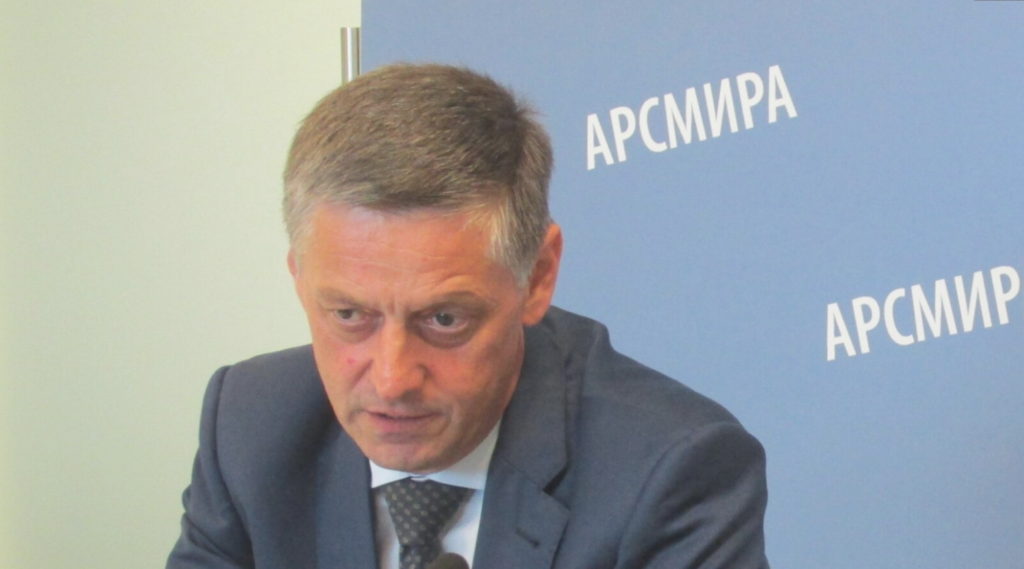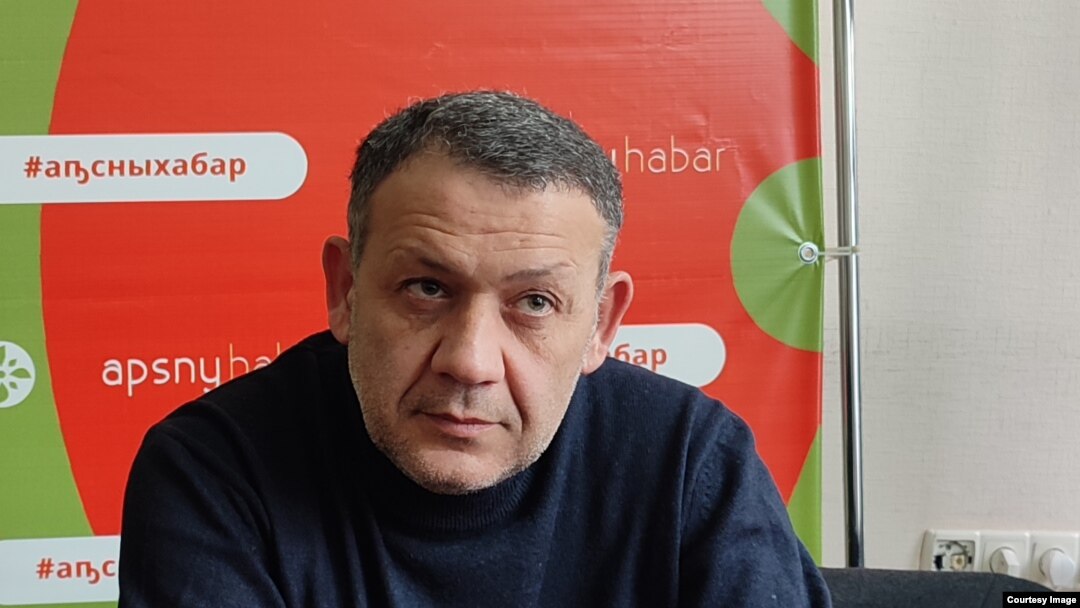Sergei Shamba’s first interview
The new Abkhaz Foreign Minister Sergei Shamba gave his first interview since his appointment to the Russian news agency RIA Novosti. We offer the interview without changes.
Sergei Shamba, Abkhazia’s Foreign Minister, gave his first interview after his appointment to a RIA Novosti correspondent in Sukhumi. In the interview, he discussed details regarding the opening of a Russian Navy base in the Ochamchire region, the location of the next round of Geneva discussions on security in the Transcaucasus, and the prospects for concluding a “non-aggression agreement” with Georgia.
Sergey Mironovich, what is the main task facing the Ministry of Foreign Affairs of Abkhazia today? What role does cooperation with Russia play in this?
The Ministry of Foreign Affairs has very important tasks ahead. These include protecting and defending our national interests on the international stage, working to expand international recognition of the republic, developing relations with countries that have recognized the Republic of Abkhazia as a sovereign and independent state, and establishing new diplomatic contacts.
We must also respond to external political challenges and threats. Overall, international relations are marked by significant turbulence today, and we must respond to this in a consistent and well-calibrated manner.
As for interstate relations with the Russian Federation, there is a long history of relations between our countries. Today, Russia is our strategic ally. We have a solid legal framework that includes foundational documents: the Treaty of Friendship, Cooperation, and Mutual Assistance between the Republic of Abkhazia and the Russian Federation from September 17, 2008, and the Treaty on Alliance and Strategic Partnership between the Republic of Abkhazia and the Russian Federation from November 24, 2014.
I would like to draw attention to the fact that the Concept of Foreign Policy of the Republic of Abkhazia lists the strengthening and development of mutually beneficial allied relations between the Republic of Abkhazia and the Russian Federation as the top priority.
We support Russia during this challenging time. I would like to remind you that Abkhazia supported the decision of its strategic ally regarding the conduct of the Special Military Operation; we recognized the independence of the Donetsk and Luhansk People’s Republics and subsequently supported their accession, along with the Kherson and Zaporizhzhia regions, into the Russian Federation. In the Special Military Operation, our citizens are fighting shoulder to shoulder with Russian servicemen.
Unfortunately, there are casualties among our volunteers. Additionally, we are providing humanitarian assistance to the new regions of Russia to the best of our abilities. Like our ally, we advocate for the formation of a multipolar, just world order based on sovereign equality and respect for the rights of small nations and peoples. Overall, Russia is a special focus in the foreign policy of our country.
How do you assess cooperation with Russia on all the stated tasks, particularly in matters of security? When will the Russian Navy base in Ochamchire be opened?
We have established multifaceted interstate cooperation. One of its most important areas is cooperation in the field of security. As you know, the 7th Russian military base is stationed in the republic. Russian border troops play a crucial role in ensuring security in Abkhazia, especially considering that Georgia refuses to sign a legally binding document on the non-use of force.
Overall, as I mentioned earlier, international relations are characterized by significant turbulence, and in light of this, Abkhaz-Russian security cooperation is important from this perspective as well. As for the Ochamchire port, there is no plan to open a naval base there.
What are the prospects for the Geneva discussions on the Caucasus, and do you intend to make any adjustments to the approach of the Abkhaz delegation? There were earlier mentions of moving the negotiations to another city. Is there already a known location? When and where will the next round of the Geneva discussions take place?
The international Geneva discussions on security and stability in the Caucasus are very important. For us, they are currently the only international platform where the Republic of Abkhazia can assert its positions and maintain a communication channel in negotiations with Georgia. The work is conducted in two groups: security and humanitarian. To date, 61 rounds have been held.
The main demand of the Abkhaz side in Geneva is the signing of a non-use of force agreement between Abkhazia and Georgia, which Georgia refuses to do. The next round of the international Geneva discussions on security and stability in the Caucasus is scheduled for November 2024. As for a possible new location for the negotiations, it is too early to discuss this.
Regarding Georgia, will there be any changes in the dialogue process with Tbilisi? For many years, we have had no direct contacts, but there was an intention to resume the Gali meetings on conflict prevention at the border. Is there a need for this?
As for Georgia, our position on this issue is absolutely clear. Georgia must recognize the existing realities: the Republic of Abkhazia is a sovereign and independent state. We have repeatedly stated that they need to repeal the “Law on Occupied Territories.”
We categorically reject the use of this term in relation to our country. Regarding the possible resumption of the Incident Prevention and Response Mechanism (IPRM) in the city of Gali, I can say that it has been inactive since 2018 due to the unconstructive position of the Georgian participants.
August 8th marks another anniversary of Georgia’s attack on South Ossetia. What are the prospects for signing a non-aggression pact with Georgia? Parliamentary elections are scheduled in Georgia this fall; could the approach of the authorities in Tbilisi toward Abkhazia and South Ossetia change after the elections?
I have already spoken to you about the prospects of signing a non-aggression pact with Georgia. Georgia’s position on this issue is entirely destructive.
As for the elections in Georgia, we see how the issue of Abkhazia is being used in the internal political struggle of our neighbors. Of course, we are monitoring what is happening in Georgia. We are closely following the appeals to Georgia and its reaction to calls for opening a “second front.” We never let our guard down. We hope that common sense will prevail.
How will relations with international non-governmental organizations in Abkhazia be structured? Your predecessor had a very tough dialogue with them. Is there a plan to establish cooperation?
Regarding the activities of international non-governmental organizations, I can say the following. The Ministry of Foreign Affairs will, of course, closely monitor the projects that come to its attention. International non-governmental organizations and UN agencies must not engage in activities with any political undertones or interfere in our internal affairs.
We remember the assistance provided by international organizations in the post-war period when Abkhazia was under blockade. Even today, we acknowledge that there are valuable humanitarian projects, and some of our citizens work in these organizations. Therefore, we will approach this matter selectively.
Sergei Shamba’s first interview


